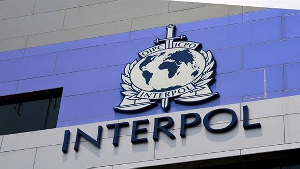The director general of the Private Enterprise Foundation (PEF) Mr. Kwasi Abeasi has observed that apart from the prevailing unfavourable business environment that weakens most local enterprises, corruption is adding to the cost of doing business.
Mr. Abeasi was addressing a gathering of business executives and stakeholders at last week's private sector meeting. The occasion was used to launch the United Nations Development Programme (UNDP) Private Sector Promotion Programme (PSPP) in Ghana.
The director general pointed out that apart from its social evil and stigma, corruption deprived the nation of scarce development funds and thus increased the cost of goods and services.
However, he was happy that the PEF has become part of the new anti-corruption coalition that was formed including stakeholders like The Commission for Human Rights and Administrative Justice (CHRAJ), Special Fraud Office (SFO), Institute of Economic Affairs (IEA), and the Centre for Democracy and Development (CDD) among others to deal with corruption in both the public and the private sector. Corruption, prior to the 1979 revolution was a source of national worry but has become widespread.
The canker is found at every stage of business transaction and in most public and private institutions where everyone in the chain of command demand favour from clients as part of the conditions for good service. Some Ghanaian enterprises in this day and age willfully engage in corrupt business practices to achieve their corporate goal even if it means to put the reputation of the organisation at stake.
The private and public sectors are now competing with one another to become the arena of poor service and endemic corruption. Simple quantitative data cannot easily capture the high incidence of corruption in the Ghanaian society but the few reported cases that eluded justice gives a snap short of the greater picture of corrupt practices in the country.
The government seems to be playing down the issue of corruption and pretends to be fighting the social canker that has become the number are enemy of private sector development.
Some officials in the government who have engaged in corrupt practices and were found to be guilty by investigation committees for stealing public funds go unpunished. Those that are caught in the act are given light punishments. An example is the recent stadium probe that exposed some sports officials who have close contact with the government. The scale of corrupt practices in Ghanaian business has become a matter of concern and gives a bad image to the nation, and this is affecting the investment climate.
Ghana has done much in improving its infrastructure and is poised to attract more investment but the nation's poor performance last year in terms of foreign investment shows that there are some more serious issues to tackle including corruption but how ready is the government to tackle the problem?
General News of Monday, 16 October 2000
Source: Accra Mail
















